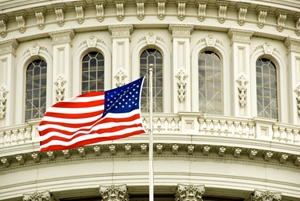
Based on polling data attempting to gauge how Americans feel about the upcoming healthcare overhaul, results indicate that the reform effort doesn't have the groundswell of support that supporters of the bill may have been hoping for, as many people are still wondering how it will impact their employee benefits and capability of getting in touch with their doctors to schedule an appointment. But those who favor the law say that they're confident the general public will come around to eventually embracing the Patient Protection and Affordable Care Act (ACA).
According to Politico, a full-fledged marketing campaign championing the ACA has yet to be put into place. However, once it is, the White House and its allies say the general public will gain a greater appreciation for what the reform law will provide them with.
Tara McGuinness, who was recently appointed to lead the ACA advertising effort, told the political news outlet that the marketing framework is currently being constructed.
"[We're] ramping up on the healthcare communications and outreach," said McGuinness.
Long time supporters of President Barack Obama in his two campaigns for the oval office have been reached out to. Politico notes that recently, leading representatives for the nonprofit organization Planned Parenthood have been asked to speak on behalf of the ACA to their client base about some of the benefits that will be more available as a result of the healthcare overhauls, such as preventive care and contraceptives.
A comprehensive rollout of what the ACA will offer is scheduled for summer. That's when a coalition of healthcare advocacy groups and consumer rights groups – formally known as "Get Covered America" will conduct a roving campaign to spread the message about what's in store when the bill becomes law.
How history measures the overall effectiveness of the ACA will largely be determined in the law's infancy. Henry J. Aaron, senior fellow at the public policy think tank Brookings Institution, recently noted at a University of Chicago healthcare conference that how Americans receive the healthcare law will depend on the efficacy with which the White House addresses "start-up glitches," which are inevitable.





